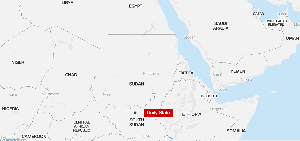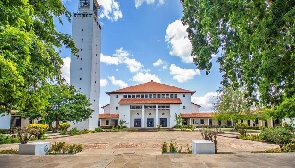Ghana is in a unique position to establish itself as a regional hub for big data and analytics management due to its emerging business technology markets and fast-growing culture for innovation, says IBM Ghana.
“The onus is now on policy and decision makers in education, government and business to foster a new generation of talent with the technical expertise and disruptive ideas needed to make the most of the Big Data challenge,” Country General Manager for IBM Ghana, Ms Angela Kyerematen-Jimoh said.
She said in a statement that investment in advanced technology training and education would kick-start the next wave of innovation and growth in Africa’s business ecosystem of which Ghana is no exception.
“Big Data has become big business internationally and the Ghanaian business community must partner with the authorities to make sure that Ghana becomes a leading player in the global Big Data revolution,” she said.
According to Gartner, a research firm, Big Data demand would drive more than 4.4 million jobs globally by 2015 – only one third of which will be filled.
That represents a huge market gap which the next generation of African professionals is well placed to fill.
A recent study conducted by the IBM Institute for Business Value (IBV), high-performing Chief Marketing Officers (CMOs) are integrating internal and external data to garner deep insights that, in turn, provide them with a much deeper understanding of their customers.
The study reveals that 94 per cent of CMOs believe advanced analytics would play a significant role in helping them reach their goals.
However, an increased number of CMOs say their organisations are underprepared to capitalize on the data explosion – 82 per cent compared to 71 per cent three years before.
“We may currently be experiencing economic difficulties, but this is not unique to Ghana.
“The crucial question to ask is, what sort of investment are we currently making to prepare our economy and society for the future?” Kyerematen-Jimoh queried.
Technology experts across Africa note that the internet, mobile telephony and the proliferation of smart devices would further fuel the growth of the data industry on the continent.
IBM’s notes that mobile, social and the Internet of things are each creating exponentially growing waves of data, as cloud transforms the underlying agility and economics.
Together with the growth of more traditional transactional data streams these trends are fueling Big Data and re-shaping the dynamics of value creation.
A big data revolution in Ghana would, therefore, require immediate investment in three core pillars, Kyerematen-Jimoh said.
She said “policymakers must cultivate technical skills in big data and analytics by working with tertiary and vocational institutions, developing courses and degrees to train a workforce of professionals whose expertise can be applied not just in Africa, but to projects around the world.”
She said “business and government must invest in Ghana’s emerging start-up ecosystems which increasingly seek to disrupt existing entities and market structures by using data as a new ‘natural resource’.”
She advocated the need for the education sector to focus on how big data to improve research and development, with a view to coming up with discoveries that can enrich economic, environmental and quality-of-life outcomes not just around the country or the African continent but all over the world.
In other parts of the world, she said, researchers are using Big Data for everything from predicting outbreaks of infectious diseases to better understanding what conditions create environmental catastrophes like hurricanes and cyclones.
Algeria’s Université Dr Yahia Fares Medea has turned to IBM to deliver a high-performance computing solution that would perform computations 700 times faster than before.
She said by investing in that sort of big data research, Africa’s research institutions could establish themselves as thought leaders in academia, generate insights with vast potential to boost economic and quality-of-life outcomes for both their countries and the world.
Kyerematen-Jimoh said IBM was poised to deepen its ongoing capacity development programmes with the University of Ghana in Legon and expand the support to other tertiary institutions across the country.
Two-thirds of IBM Research’s work is now devoted to data, analytics and cognitive computing.
Business News of Tuesday, 4 August 2015
Source: GNA

















